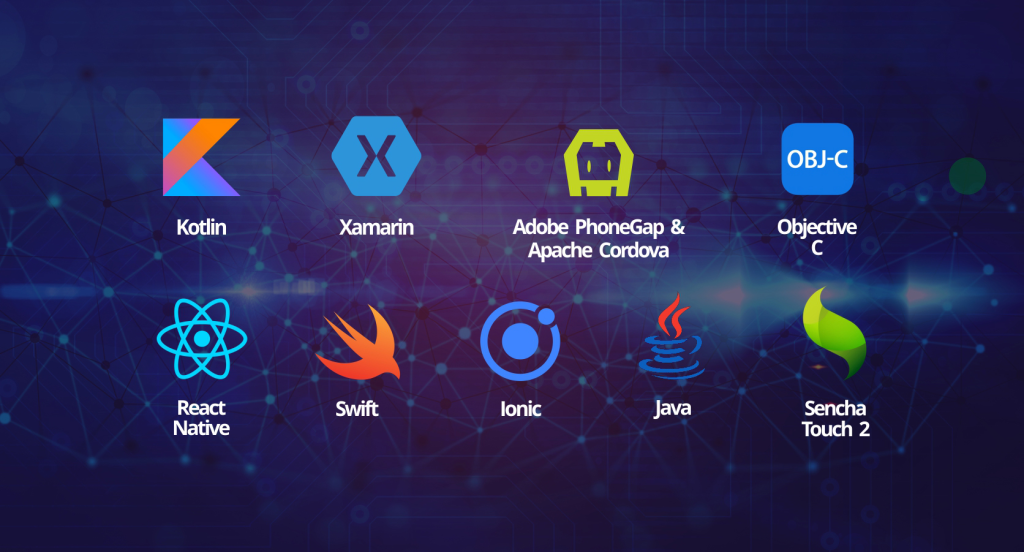
In the evolving landscape of mobile app development, choosing the right framework is crucial for project success. Here’s a look at some of the leading frameworks in 2024, along with their key features and considerations:
Top Frameworks:
- Flutter (Google):
- Open-source framework offering native app development for iOS and Android using a single codebase written in Dart.
- Hot reload provides instant updates during development, speeding up the process.
- Gaining popularity due to its fast performance, rich widget set, and cross-platform capabilities.
- React Native (Facebook):
- Open-source framework utilizing JavaScript to build native iOS and Android apps.
- Leverages React components and a large community for efficient development.
- Mature framework with a wide range of libraries and tools available.
- Kotlin (JetBrains):
- Statically typed programming language primarily used for Android development.
- Offers conciseness, interoperability with Java, and improved developer experience.
- Can be used for native Android development or as a multiplatform language with tools like Kotlin Multiplatform Mobile (KMM).
- Swift/SwiftUI (Apple):
- Apple’s primary languages and frameworks for building native iOS and iPadOS apps.
- Swift is a modern, powerful, and simple-to-learn language.
- SwiftUI is a declarative UI framework promoting a visual and code-efficient approach.
- Xamarin (Microsoft):
- Open-source framework allowing native iOS and Android development using C#.
- Enables code sharing and leverages the .NET ecosystem for development.
- Mature framework with established enterprise support.
Other Frameworks:
- Ionic: Offers a hybrid approach using web technologies (HTML, CSS, JavaScript) to build apps for various platforms.
- NativeScript: Another hybrid framework leveraging JavaScript to build native apps.
Choosing the Right Framework:
When selecting a framework, consider:
- Project Requirements: Native or hybrid approach, performance needs, and platform support.
- Development Team Expertise: Skills and preferences of the developers.
- Project Timeline and Budget: Learning curve, community support, and potential development costs.
- Future Maintainability: Long-term support and evolution of the framework.
Stay informed about emerging frameworks and trends, as the landscape constantly evolves. Exploring different options and carefully evaluating your project’s needs will guide you towards the most suitable framework for your mobile app development endeavors in 2024.
Latest posts by Rahul Singh (see all)
- Mutual of Omaha: Selection and Interview process, Questions/Answers - April 15, 2024
- AES: Selection and Interview process, Questions/Answers - April 15, 2024
- Amphenol: Selection and Interview process, Questions/Answers - April 15, 2024

